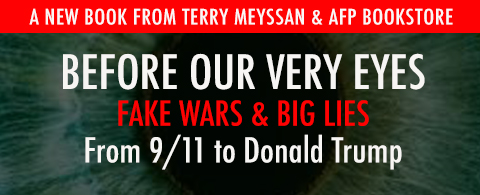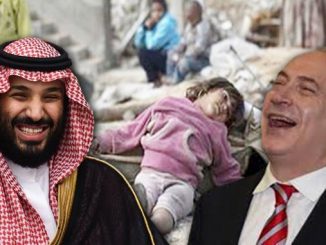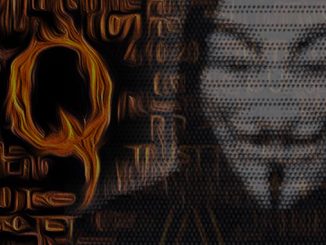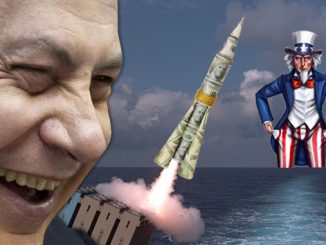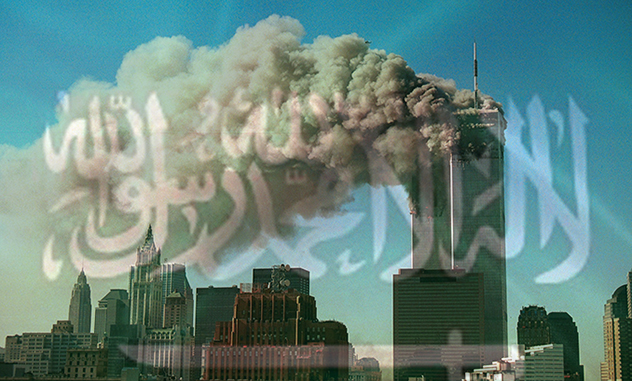
Despite unanswered questions, no “smoking gun” links Saudis to 9/11 attacks.
By Philip Giraldi
There are a number of questions about 9/11 that have never been satisfactorily answered even if one accepts, with great reservations, the standard narrative that the attack was carried out using hijacked civilian airplanes by 19 Islamic terrorists belonging to a group called al Qaeda that was founded by Saudi Arabian Osama bin Laden. It has now been nearly 19 years since 9/11 took place, a terrorist attack that changed the United States forever and launched a crusade by Washington to institute a New World Order in which the U.S. would be judge, jury, and executioner with respect to global terror. The war has not gone well for Americans, with the U.S. not measurably more secure today than it was in 2001 while the burden of policing half the world has left the country weakened, poorer, and running out of options.
The most significant questions remaining about 9/11 ask whether bin Laden acted alone or was assisted, directly or indirectly, by any other government or government agency, or if he was involved at all. Those questions can be broken down to domestic and foreign aspects, whether a foreign government such as Israel was involved or if some U.S. federal entity might have been part of what is now called the Deep State.
The 585-page unclassified documentary report produced by the 9/11 Commission investigators suggests that little or nothing was done to look for any possible domestic players in the tragedy. Alternatively, if the panel did so, its actions and conclusions may have been buried forever behind a classification wall. Perhaps more disturbing, the investigation of possible foreign government involvement was superficial and completely redacted from the public document prior to 2016, when some details were revealed.
Saudi Arabia and Pakistan both had contact with at least some of the hijackers, and 15 of the 19 claimed attackers were Saudi nationals. Also, it has long been believed that a massive Israeli spy operation run in the United States had revealed some details of the al Qaeda plan of attack, information which was not shared with Washington. The five so-called Dancing Israelis celebrating the fall of the Twin Towers has never been satisfactorily explained, and Prime Minister Benjamin Netanyahu described the terrorist attack as “good for Israel,” as it bound the U.S. into a de facto alliance with the Jewish state against “militant Islamic terrorism.”
Currently, some new information relating to possible Saudi Arabian direct involvement in the activities of the hijackers has come to light. Former FBI Assistant Director for Counterintelligence Frank Figliuzzi, who was involved in the 9/11 investigation from a law enforcement perspective, has claimed in an interview, “To think that they [Saudi officials] did not play some knowing role or at least had some indirect role in 9/11, I think, would be naiveté. It’s safe to say there are unresolved and undisclosed factors touching on Saudi government knowledge and/or involvement in or with the 9/11 hijackers and plotters.”
The comment was made in the context of a previous day’s news report that the FBI had inadvertently revealed in a court filing the identity of former Saudi Embassy diplomat Mussaed Ahmed al-Jarrah, who had been suspected of arranging direct support for two of the alleged 9/11 hijackers who were then residing in Southern California. Al- Jarrah is believed to be a member of the Saudi General Intelligence Directorate. In 2000, he directed other Saudi government employees Fahad al-Thumairy and Omar al-Bayoumi, who were previously identified in 2016, to assist the hijackers, who had recently arrived in the U.S.
The disclosure by Figliuzzi is not exactly new, but it implies that there might be more information that the public needs to know that is being protected in FBI files. The Trump administration’s Attorney General William Barr addressed the issue of possible Saudi involvement in the terrorist attack by expunging the diplomat’s name from the public record. He went on to declare such information to be a “state secret” that would harm national security if revealed.
Figliuzzi went on to describe how Saudi Arabia is an unlikely American ally, saying: “I don’t think the public has had the benefit of understanding the full linkages there. The Saudi government is a force to be reckoned with in regard to their linkages to radical violent extremism, their funding of operations within the United States to include radical Muslim clerics . . . their funding of madrassas or Muslim schools and even clerics that expound radicalism and extremism.”
On July 15, 2016, the Obama administration responded to intense pressure by 9/11 families to release a lengthy redaction from the 9/11 Report consisting of “28 pages” that provided the first suggestions that there was solid evidence behind a suspected Saudi government role in the terrorist attack. To be sure, there were deletions from the text to protect names and sources, but the document produced by the White House was largely complete. CIA Director John Brennan—recently exposed as being involved in the attempt to sabotage the incoming administration of Donald Trump—provided some damage control prior to the release by arguing that much of the information contained in the redacted section consisted of “raw” and untested information. He suggested that it might not be completely reliable, while some who had seen the full document revealed through leaks that there would be no “smoking gun” exposing direct Saudi involvement in 9/11.
The release of the document produced a brief flurry in the media but, perhaps intentionally, the story disappeared amidst the avalanche of political convention reporting. There was a great deal of new information, though most of it served to corroborate or expand on what was already known. One particularly interesting snippet recounted how, in 1999, two Saudi men on a flight from Phoenix to Washington, D.C. for an alleged visit to the Saudi Embassy to attend a party asked numerous questions about the plane’s security and tried several times to enter the cockpit. They claimed their tickets were paid for by the Saudi Embassy.
The key players in the story who were ordered by al-Jarrah to directly assist several hijackers, as revealed by the 2016 release, were Omar al-Bayoumi and Fahad al-Thumairy. Al-Bayoumi was described as a “non-official cover” intelligence officer, but the way his funding from the Saudi Embassy and other official sources fluctuated, paying him irregularly, suggests that he might have been a source or informer, not an actual government case officer. Bayoumi was, in turn, in regular contact with Fahad al-Thumairy, an actual employee of the Saudi consulate in Los Angeles, who may have also been an intelligence officer and his local controller.
The “28 pages” do not demonstrate any intent by the government in Riyadh to enable its citizens to carry out a terrorist attack on U.S. soil, nor any definitive knowledge that something like that might be developing. One alternative theory about the embassy contacts is that the Saudi government was in fact monitoring the activities of some of its more radical citizen-travelers, a much more benign interpretation of what might have been occurring.
But the leak of the name of yet another Saudi intelligence officer who was in contact with the 9/11 hijackers is to say the least intriguing. It should also be noted, for what it’s worth, that the Bush administration clearly regarded Saudi Arabia as a special friend, a tradition that continues with President Trump. In the wake of 9/11, Saudi officials in the U.S., to include members of the bin Laden family, were allowed to fly home even though all flights had been grounded. And the White House also directed the FBI and CIA to “back off” from aggressively investigating the Saudi kingdom’s intelligence operations in the U.S. and globally. Whether that made any difference in terms of what subsequently happened cannot be determined at this point, but after 19 years of obfuscation the American public certainly deserves to know the whole truth and nothing but the truth about who really was involved in carrying out the events of Sept. 11, 2001.
Philip Giraldi is a former CIA counter-terrorism specialist and military intelligence officer and a columnist and television commentator. He is also the executive director of the Council for the National Interest. His other articles appear on the website of “The Unz Review.”
Arms Sales Facts & Myths
By Richard Walker
Controversy surrounding an investigation of Secretary of State Mike Pompeo’s decision to bypass Congress to complete an $8 billion missile deal with Saudi Arabia has exposed the myth of the benefits of doing business with the Saudis. The controversy arose after President Donald Trump, at Pompeo’s request, fired an inspector general who was investigating a decision by Pompeo in 2019 to use an emergency declaration to undercut congressional opposition to get weapons to the Saudis. On the one hand, there was no such emergency, and Congress had opposed the sale following the murder of the journalist Jamal Khashoggi and the assertion by the CIA that Saudi leader Mohammed Bin Salman personally ordered the killing.
Whether Pompeo, who has been advocating for war with Iran, personally decided to give the Saudis the weapons or was prompted to do so by President Trump or his son-in-law Jared Kushner, who is a close friend of the Saudi leader, the decision called into question the way in which the Saudis have consistently been able to deftly manipulate successive U.S. presidencies.
For decades, Saudi Arabia has built a massive arsenal of modern weaponry, most of it purchased from Washington. The only exception might be its ballistic missile capability. It has close to 600 missiles purchased from China. There is also a suspicion, since it provided money to help Pakistan develop its nuclear weapons, that in return it received enriched uranium, which it could use should it ever decide to build a nuclear bomb.
But it is the Saudi war in Yemen that has drawn the most scrutiny and has led to the Saudi military’s need to boost its dwindling supplies of air-to-ground missiles and bombs. This, in turn, has focused considerable international attention on its main weapons supplier, the United States.
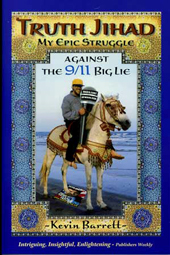
The Obama administration was a big supplier of weapons to the Saudis until some of the bombs it sold them killed 97 people at a market in Yemen and over 40 schoolchildren on a bus.o, but, in reality, it is a myth and it deserves to be exposed.
The stark truth about arms sales has eluded the American public for decades. For example, the U.S. has, for years, been selling not only weapons but also manufacturing licenses for many of those weapons to be made abroad, thereby depriving American workers a share in the arms trade. The number of licenses granted to countries purchasing U.S. weapons doubled in 2017-2018. The Saudi deal, much hyped by President Trump, will likely produce 20,000 to 40,000 new jobs—if any at all— according to the Center for International Policy (CIP), an independent nonprofit center for U.S. foreign policy research. It found that less than a tenth of a percent of the U.S. labor force benefited from arms sales and that there has been an increasing tendency for the U.S. to sell weapons to repressive and unstable regimes across the globe. The Cato Institute argues that U.S. arms sales have been “out of control” since 2002.
The decision by Pompeo in 2019 to ignore advice from political, military, and intelligence figures about not using a bogus emergency waiver to do business with the Saudis followed a pattern that was not new in the sense that the Saudis have always gotten what they wanted out of Washington, especially when it comes to the weapons trade. They use the tactic of buying favor by employing top lobbying firms in Washington to influence decision makers on Capitol Hill. They even have friends in all the right places, from the White House to the State Department. A Saudi contact who was in Pompeo’s inner circle at the State Department was Charles Faulkner, who had worked for a lobbying firm registered in Saudi Arabia. He had also lobbied for missile manufacturer Raytheon.
All in all, Pompeo has become the victim of his own desire to play the role vacated by John Bolton of being the scourge of Iran and the friend of Israel and Saudi Arabia, In doing so, he exceeded his authority by using a bogus means to bypass Congress, of which he had been a member and a staunch defender until he allied himself with those who think the Saudis should be able to buy whatever they want. It is past time that Congress admitted that big arms sales benefit big arms corporations and not American workers. And, to be told, a well-armed Saudi Arabia is something that the Israelis have no objection to, possibly one of the reasons Pompeo and Kushner have worked so hard to make these deals happen. Many believe if Israel did not want the Saudis to have advanced weaponry, they wouldn’t have it.
Richard Walker is the nom de plume of a former New York mainstream news producer who grew tired of seeing his articles censored by his bosses.



